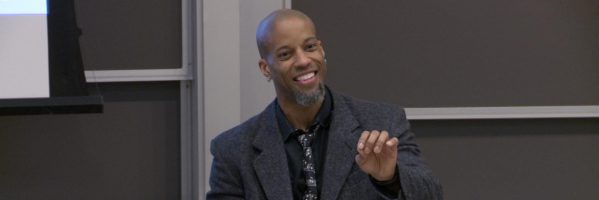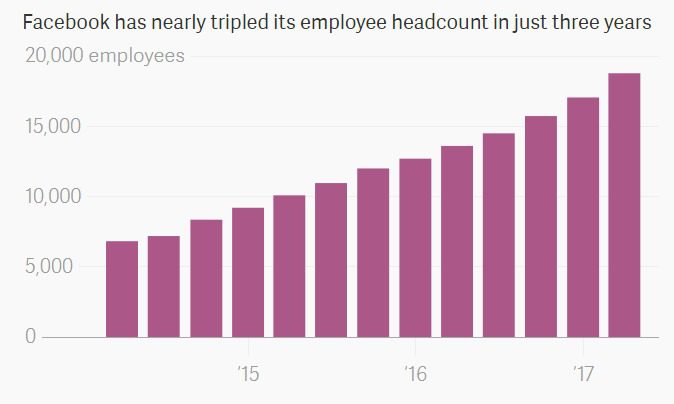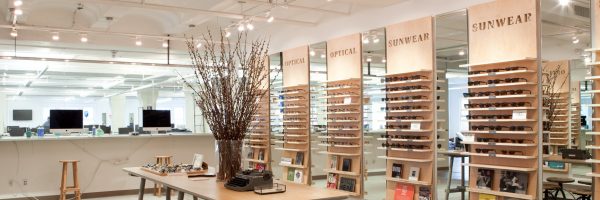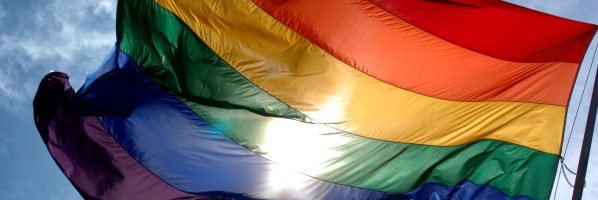Philly News: UD Promotes Gender Equity and More

Let’s visit some of the biggest news coming out of Philadelphia business schools this week.
LeBow Students Help Dow Chemical Use Customer Feedback—Technical.ly Philly
Teams of students and faculty at Drexel University’s LeBow College of Business are on a mission to help companies utilize massive amounts of untapped data. Recently, LeBow students have been helping university partner Dow Chemical in a quest to glean insight into consumers’ responses to products.
According to the project’s supervisor, Professor of MiS Murugan Anandarajan, “Our students not only extract, clean and explore data—they also derive valuable insights that can be used to make decisions. Students transform data points to convey potential strategies that companies should implement.”
Using online reviews of Dow products, students created an interactive dashboard to map out patterns in reviews. With an accessible map of this data, the company can easily use trends in consumer feedback to improve its products and marketing.
Read more about LeBow’s work with Dow Chemical here.
Lerner College to Host Women’s Leadership Initiative Launch—Delaware Business Now
The World Economic Forum predicts that it will take 158 years to reach true gender equality in North America alone. Luckily, schools like University of Delaware’s Alfred Lerner College of Business and Economics are committed to promoting gender equity now. In fact, this International Women’s Day, Lerner is hosting the Women’s Leadership Initiative Launch at the Roselle Center for the Arts.
According to UD’s website, the Women’s Leadership Initiative (WLI), “… is the preeminent driver of learning to propel transformational women leaders and advance gender equity in the workplace.”
The free event at the Roselle Center will feature prominent alumni speakers like Terri Kelly, president and CEO of W.L. Gore and Associates, Inc., Mary Ellen Payne, former VP of sales and marketing at Verizon Communications, and several others.
Read more about the Women’s Leadership Initiative Launch here.
Wharton Professor Claims Brainstorming Meetings Stifle Creativity—CNBC
In a recent interview with Amazon, Adam Grant, famed author and professor at The Wharton School at University of Pennsylvania, detailed the flaws with using brainstorming meetings to find creative solutions. According to Grant, bringing colleagues together to think out loud is a surefire way to limit the scope of their ideas. Shyer or less assertive members of the team may go unheard, fear of embarrassment may make others “play it safe” by expressing only their most conventional ideas, or the members of the group may fall into convergent thinking, wherein the majority of people support one idea and less popular suggestions fizzle out.
Grant promotes having everyone write out their ideas before sharing them. In fact, Grant says that the way to reach maximum creativity is to write out 200 ideas. Grant, organizational psychologist, has authored several books and was recently named to Fortune’s 40 Under 40 list.
Read more about Adam Grants views of creativity in business here, and check out the Amazon video below.
Why More Male Celebs are Advertising Diet Products, According to This Wharton Prof

Americus Reed, marketing professor at University of Pennsylvania’s Wharton School, recently contributed his insight to an article in USA Today that explored diet firms’ trend toward utilizing male celebrity endorsements to promote their plans and products.
Male celebrities like ’80s wunderkind Rob Lowe (Atkins Nutritionals) and hip-hop producer DJ Khaled (Weight Watchers) have become the new male faces of these diets. Diet companies are shifting their advertising approach in order to draw in a male demographic and expand the reach of their products.
Women like Oprah Winfrey, Kirstie Alley, and Jennifer Hudson have been endorsing diet plans for decades, but the move toward male celebrity spokespeople is newer in the industry.
It makes sense that USA Today capitalized on Reed’s knowledge of consumers, as on his website, he is credited as the only “identity theorist” in Wharton’s Marketing Department. His research specifically addresses the effects of consumers’ senses of self on their shopping habits.
According to Reed, using celebrities to advertise is effective because fame comes with a great deal of power.
“Celebrity endorsements tap into that,” Reed says. ‘”I want to be like Rob Lowe, Kim Kardashian, Zac Efron, Taylor Swift. They use product X. I want to use X.’ It’s that straightforward of a persuasion.”
In reference to the company’s new marketing strategy, Scott Parker, the chief marketing officer of Atkins Nutrtionals, said, “We identified as a primary target for growth what we call self-directed people who are interested in eating better. The self-directed target is pretty evenly split between men and women … Clearly, needing to lose weight and lead a healthier lifestyle isn’t restricted to females.” Parker also indicated that Rob Lowe as a spokesperson appeals to both male and female demographics.
USA Today is not the first publication to benefit from Reed’s expertise. The New York Times and CBS Philly have quoted him in articles as well.
Facebook Tops Glassdoor’s 100 Best Places to Work List

Employer review website Glassdoor, which allows users to read anonymous employee testimonials about employers, has revealed its annual “Best Places to Work” list, with familiar MBA recruiters Facebook, Bain & Co, and Boston Consulting Group (BCG) earning the top three spots.
Why Facebook?
Since 2011, the social media empire has been one of Glassdoor’s most praised companies to work for, earning a top five spot seven out of the past eight years, including three number one overall awards. Facebook employees are often given extensive benefits, including four months of paid maternity leave—a policy often considered a luxury in the U.S., which has no legally mandated paternity leave policies for employers. As well, earlier this year, Facebook COO Sheryl Sandberg announced the company would implement paid sick time for employees and family members.
With increasing revenue streams, the company’s hiring numbers have continued to swell, with nearly 19,000 employees as of earlier this year—a 38 percent jump from March 2016 to March 2017. In fact, just this week, the company announced it will be adding 800 more jobs at its new London office.

Data via Facebook, graphic by The Atlas/via Quartz.
Of course, the central pitch to work at the social media monolith may be predicated on the payment of employees. According to Paysa, the average Facebook salary is north of $250,000 annually, combining base pay, bonuses, and equity. Most jobs at the company start at, at least, $70,000 USD annually, with business management roles starting at $135,000.
The company has also made a concerted effort at diversifying its hiring. Speaking with Forbes, Lori Goler, vice president of people, said, “Diversity is critical to our mission at Facebook, because we serve a community of 2 billion around the world, and of course there’s diversity in that community.”
The company, according to Forbes, employs between 33 and 35 percent women, and there has been considerable gains among women employed with computer science and engineering backgrounds, as well as a 500 percent increase in employment among those of African descent since 2014. In the interview, Goler added, “We’re nowhere near where we want to be, but we’re at least hearted to see that at least we can make some progress.”
Check out Facebook’s graduate student recruitment page here.
Consulting Companies Still Reign
While certain statistics indicate a wave of MBA grads may be leaving consulting in favor of tech-centric employers, as evident by the recently released Northwestern University Kellogg School of Management employment report, consulting companies are remain one of the primary targets for MBA students and graduates, and for good reason.
Bain & Co., like Facebook, has been endlessly praised by Glassdoor reviews, ranking among the top four best places to work every year since 2009. Like most of the companies on the year-end list, Bain offers ample benefits, including several months of paid maternity leave, comprehensive vacation and insurance policies, and one of the world’s best 401K offers. Fellow Boston metro company BCG also officers a considerable parental leave benefits package, retirement planning, and lofty salaries.

Inside the New York City BCG office/Photo via BCG.
Like Bain, BCG makes a concerted effort to bring in incredibly comparable MBA graduates, recruiting students from multiple prominent business schools like The Wharton School, NYU Stern, Columbia Business School, and many more.
Some Traditional Companies Remain Steady, While Giants Like Apple Stumble
Tech empire Google, not surprisingly, held its place among the top 10 companies—having never fallen lower than eighth overall since 2012. Just outside of the top ranking companies, McKinsey & Co. stayed within the top 20, while other notable heavyweights like Microsoft (39th), Capital One (69th), Deloitte (77th), Accenture (83rd), and Apple (84th), the world’s most successful consumer company, fell to the lower ends of the list.
Despite having the second most profitable year in company history, falling shortly behind it’s 2015 figures, Apple has been steadily dropping down Glassdoor’s annual Best Of list, posting its worst standing in the history of the ranking—nearly 50 spots worse than last year’s ranking of 36th overall.
Considering, however, that the annual ranking is comprises of over 500,000 companies, this drop may not be as serious as it would appear. The overall Glassdoor rating for Apple was 4.3, in contrast to Facebook, which boasts a current 4.6 rating. The average Glassdoor rating for employers, for context, is 3.3.
Some Surprises
Not every company included in the Glassdoor Best Of list could be considered a traditional MBA recruiters, including beloved U.S. west coast fast food chain In-N-Out Burger (fourth overall), growing athletic leisurewear empire Lululemon (sixth), wine company E. & J. Gallo Winery(14th), Delta Airlines (17th), and The Church of Jesus Christ of Latter-day Saints (19th), which provides “Excellent dental and medical coverage,” according to an anonymous employee. Plus, “you work with people who don’t swear.”
For a more extensive overview of the methodology behind the ranking, click here.
To Fume Or Not to Fume: Wharton Studies Cite Benefits of Anger in Negotiation

A recent article on effective negotiation and competition tactics in the Wall Street Journal utilized the results of four studies from The Wharton School. Specifically, the article discussed the benefits of getting angry in these situations.
The article cites four Wharton studies that explored the effects of anger on motivation and outcome in negotiation and competition settings. In the negotiation studies, subjects were informed that they would participate in a meeting with another person. Half of the subjects were told the meeting would be a negotiation, and the other half were told they would just be having a conversation. In the competition study, researchers told half of the participants they would be playing a computer game with a teammate, and told the other half that they would be playing a video game against a rival player. Participants in both studies were given the option to watch either a clip of standup comedy or an upsetting harassment scene from the 1985 film Witness.
Subjects who believed they were entering into a competition or negotiation were far more likely to watch the harassment scene, whereas those who were told they were having a conversation or playing a game as a team gravitated toward watching standup. Participants who watched the upsetting video before going into a negotiation or competition (and expected their anger to be a useful tool) performed more effectively.
Multiple studies have shown that negative feelings can be an asset in negotiations—or at least that positive feelings an be an impediment. In her book Sensation: The New Science of Physical Intelligence, psychologist Thalma Lobel suggested making people as physically comfortable as possible before proposing a business deal. An act as simple as serving someone a warm cup of coffee proved to increase their positive feelings toward the other person, and consequently made them a more lax negotiator.
Though it seems anger can be an effective tool, the article cautioned readers that it can also impede the creative process by narrowing thinking. Additionally, getting mad can negatively impact coordination. But ultimately, anger, when harnessed carefully and expertly, can improve chances of victory in competitive settings.
Warby Parker Co-Founder Talks About Wharton Days

Dave Gilboa, co-founder and co-CEO of the eyewear company Warby Parker, recently spoke with The Atlantic, wherein he gave insight into the process of starting a business. The interview was a part of The Atlantic’s “On the Shoulders of Giants,” series. The publication calls the series and exploration of, “The possibilities and pitfalls of mentorship.” Gliboa was a fitting choice for the series, since, according to the entrepreneur, a huge part of starting his business was reaching out to those with greater experience in business as well as those who had more knowledge of his particular industry.
“We spent a ton of time getting advice and or mentorship from people who had either started a business before, or who had expertise in a specific area—like optometry, fashion, design, or e-commerce,” Gilboa said.
The idea of starting an affordable online eyewear business came to Gilboa and his collaborators while they were pursuing their MBAs at University of Pennsylvania’s Wharton School. One of the students, Neil Blumenthal, had already run VisionSpring, a nonprofit that empowers women in impoverished areas to provide eye care services. Though Blumenthal had some experience in the eyewear industry from VisionSpring, the team still had a lot to learn before they could successfully get such an unconventional idea off the ground.
Jordan Kassalow, the founder of VisionSpring, offered significant support to the budding Warby Parker team. Kassalow is an optometrist, and asked them critical questions based on his expertise while expressing genuine enthusiasm for their idea.
Gliboa said that one of the most important thing he learned from his mentor was, “That there are hundreds of millions of people around the globe that need corrective lenses and don’t have access to them, and that getting someone a pair of glasses is one of the most effective poverty-alleviation tools in the world.”
The mentorship relationship was mutually beneficial, as Warby Parker has partnered with Kassalow’s nonprofit, VisionSpring, and for every pair of glasses Warby Parker sells, a pair is donated to someone less fortunate.
To Be Out—or Not to Be Out—in Your MBA Application?

In honor of yesterday’s National Coming Out Day, we thought we’d tackle a thorny question faced by some applicants to leading business schools: To be out—or not to be out—in your MBA application? In recent years, increasing numbers of top business schools have given applicants the opportunity to disclose their sexual orientation as lesbian, gay, bisexual, transgender, or queer (LGBTQ) as part of their application if they so choose. But what are the pros and cons of doing so? To find out, we spoke with admissions directors at schools all over the country to get their input.
The overwhelming consensus, we found, was that there are multiple positives and few, if any, negatives to sharing your sexual orientation as part of the application process provided you feel comfortable doing so. This is not to say that anyone should feel pressured to disclose anything that they are not personally comfortable sharing—just that those who feel inclined to share shouldn’t have any hesitation from an admissions standpoint.
“I Really Only See Pros”
“I really only see pros,” says Soojin Kwon, managing director of full-time MBA admissions at the University of Michigan’s Ross School of Business. “We are always encouraging applicants to be very authentic and bring their whole selves so that we have context around them. We are a very diverse and inclusive community, and we want to know every aspect of who you are and what you’ll bring to that community.”
Applicants who do disclose LGBTQ status—or even those who don’t—also can indicate that they would be interested in hearing from students in the school’s Out for Business student club, which helps prospective students get tapped into the campus LGBTQ community well before they arrive on campus. “Our current LGBTQ students absolutely reach out, embrace, and actively engage with applicants who self-identify because they want to make sure that our community is very strong on every aspect of diversity—they are very proactive,” Kwon says.
NYU Stern School of Business Associate Dean of MBA Admissions Isser Gallogly stresses that whether or not to disclose sexual orientation is a personal choice that should be based on each individual’s comfort level. “But certainly at NYU Stern—in New York’s Greenwich Village—we are obviously incredibly diverse and supportive of diversity,” he says. The LGBTQ rights movement can trace its origins to the neighborhood surrounding Stern, and a community of acceptance has prevailed there for decades.
“It Might Present Certain Advantages”
But even beyond Greenwich Village and Stern, Gallogly tells LGBTQ applicants that they shouldn’t have concerns about being out in the MBA admissions process. “Business schools are looking for diversity—we as admissions officers are always looking for different vantage points and perspectives that applicants can bring to the class. I think anything that’s a little different or unique only helps your personal story,” he says. “I don’t think there’s any disadvantage to being out in the admissions process, and, in fact, it might present certain advantages.”
Self-Identifying Is First Step to Qualifying for LGBTQ MBA Fellowship
Indeed, students who self-identify as LGBTQ at certain schools will automatically be considered for scholarship aid through the Reaching Out LGBTQ MBA (ROMBA) Fellowship Program. ROMBA is a nonprofit organization dedicated to “educating, inspiring, and connecting the student and alumni LGBTQ MBA and graduate communities in an ongoing effort to create the next generation of out business leaders.” Recipients of the LGBTQ MBA Fellowship each receive a minimum of $10,000 in scholarship aid per academic year or $20,000 in total scholarship aid for two years. In addition, they get access to exclusive mentorship and leadership programming through ROMBA. Fifty-five members of the Class of 2019 will collectively receive more than $1,300,000 for each year in business school, ROMBA reports. “Since 2015, 35 schools have awarded $6.3 million to LGBTQ applicants who were out on their applications,” adds Matt Kidd, ROMBA Executive Director.
Beyond self-identifying through a school’s application form, applicants interested in being considered for the ROMBA fellowship are encouraged to demonstrate LGBTQ leadership roles on their resume, express interest in business schools’ on-campus LGBTQ clubs, and share relevant LGBTQ leadership experiences in their application essays.
YOU MIGHT ALSO LIKE: This Year’s Reaching Out MBA LGBTQ Conference Arrives in Boston
Prem Tumkosit, a 2011 MBA graduate from Yale School of Management (SOM), didn’t explicitly disclose his sexual orientation on his MBA applications. When he was applying, that option was provided by fewer schools. “But I did list my participation and leadership positions in LGBT organizations, which I felt was essentially disclosing,” he says.
Gallogly adds that current students are frequently shocked and surprised—once they begin the recruiting process—by how many corporations are likewise looking for diversity, including in sexual orientation. “The short story is if you feel comfortable, I would go for it [disclose sexual orientation], because you will see opportunities to receive support,” he said. “Short story: It’s a good thing.”
Opt in to Get Connected to On-Campus Groups
Bruce Delmonico, Assistant Dean and Director of Admissions at Yale SOM, says that his team considers it so much a positive that he sometimes has to stop and remind himself that some applicants might actually wonder if it could be viewed as a negative. “We consider it an aspect of diversity, so we certainly don’t see any negative in it,” he says. As at Ross—and many other schools—Yale SOM also allows applicants to opt-in to receive communication from LGBTQ students and groups, which helps facilitate valuable connections both during the application process and in the months leading up to school’s start.
“I really don’t see any negatives to it,” Delmonico continues. “People sometimes choose not to disclose, and obviously that is fine—it’s everyone’s individual choice,” he notes. “It can still be a difficult thing—and people are at different stages in terms of their own self-identification—so it is not as though not sharing is viewed negatively. But it is an aspect of diversity that we think about as we are trying to put together our class, so we view it as a positive.”
Delmonico does share that Yale has seen an increase in the number of people self-identifying as LGBTQ. “I think that’s a good thing,” he says, “but we do want to make sure people are being accurate in self-reporting,” he adds. Especially outside of the United States, he worries that not everyone knows what it means to identify as LGBTQ.
Don’t Self-Identify as LGBTQ If You’re Not LGBTQ
“We also sometimes have to wonder if some candidates might be looking to game it a little bit,” he says. “That’s something we are starting to be sensitive to. We look at it as a positive—but we don’t want people just checking the box because they think it might give them a little boost over other applicants.” To offset potential gaming of this system, his team has begun to dig a little deeper to see what being LGBTQ means to those who check the box. “It’s not something we would ask about in an interview,” he stresses, “but we will look to see what else they might have shared” that might support their LGBTQ status. “It can be helpful, if you are self-reporting, if you share some way you are expressing that already,” he says. For example, some people write about LGBTQ themes in their essays or talk about related groups they’ve been part of, he says.
Amanda Carlson, Assistant Dean of Admissions at Columbia Business School, shares that her team also saw an uptick in self-reporting among applicants for the Class of 2019, particularly from certain regions. “I am saying this somewhat tongue and cheek,” she notes, “but it’s like some admissions consultant told candidates in China that saying you are part of the LGBTQ population is a good thing, because I think every single Chinese candidate this year checked the box.” Of course, she met personally with Chinese candidates who were quite genuinely members of the LGBTQ community, she adds, but she also wonders if there was some confusion among some applicants about what LGBTQ means.
“At the same time, we recognize that there is an appeal to being in New York—where people rightly feel that being LGBTQ is a warm and accepted thing—where it may not always be in China,” she notes.
Is LGBTQ Inclusive Enough?
Maryellen Reilly, deputy vice dean of admissions, financial aid, and career management at the University of Pennsylvania’s Wharton School, echoes what other admissions directors have said, adding that for some students it can also be liberating. “Some students may not have been out in high school or college and it can be liberating to share it as part of applying to business school—to get to say, ‘Here I am—this is who I am,’” she says. “It’s one less thing you have to worry about hiding at school.” As for a con to self-reporting, “I kind of don’t know that there is one—I can’t think of one,” she says.
Reilly remembers the process that her team went through when they first started thinking about adding the opportunity to self-identify as part of the application. “Did you know that Facebook has 50 different categories around sexual orientation?” she asks. She didn’t. “My mind was blown.” One of the students championing the cause argued that Wharton needed to include all 50. “It’s a spectrum—and we did a lot of learning from an admissions perspective,” she says. “Our LGBTQ community was really strong and vocal, and meeting them where they are required some give and take on both sides,” she says.
So far, her team hasn’t seen any candidates that it thinks might be trying to gain an unfair advantage by claiming to be LGBTQ when they aren’t. “We haven’t seen anything remotely like that—that’s a bridge we’ll cross when we get there, should we get there.”
Jennifer Redmond, a 2016 Wharton MBA graduate, did NOT disclose as part of her application that she is LGBTQ although the option was available when she applied. Prior to business school she worked in London in finance and hadn’t been open about the fact that she identified as a lesbian at work. “Being in Europe, I was reluctant to come out and potentially not have a great reception,” she says. That hesitation carried over to her MBA applications. “In retrospect, my advice to prospective applicants would be that you can tick that box,” she says. “It is completely confidential, and it’s a good way to get looped into all the activities that are available to members of the LGBTQ community.”
Redmond would later attend a welcome weekend at Wharton, where the Out4Biz student club hosted welcome drinks. “It was one of the biggest parties of the weekend, and it became clear to me that the LGBTQ community occupied a very central part of life at Wharton,” she says. “That ended up being a big part of my decision to attend.” When she did move over from Ireland to attend pre-term at Wharton, her roommate was gay and HAD ticked the box. “He was so much more looped into things than I was to start—it made me a little rueful I hadn’t ticked the box myself,” she says.
